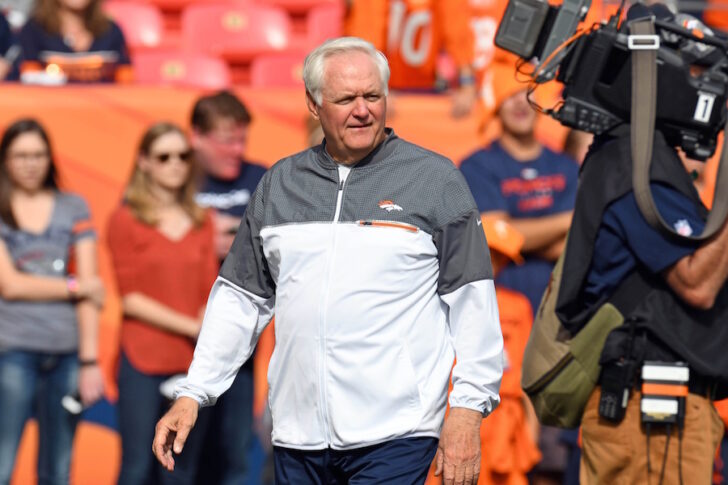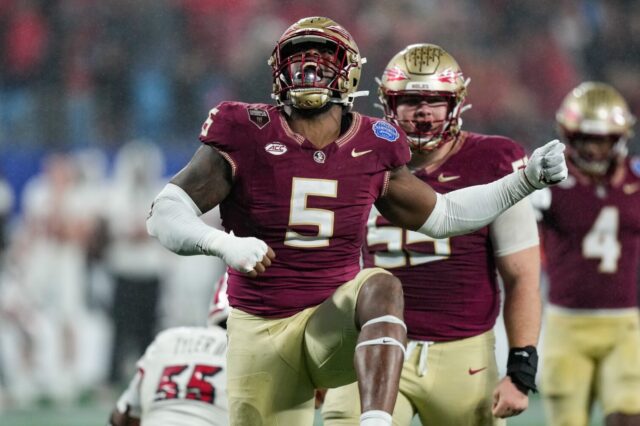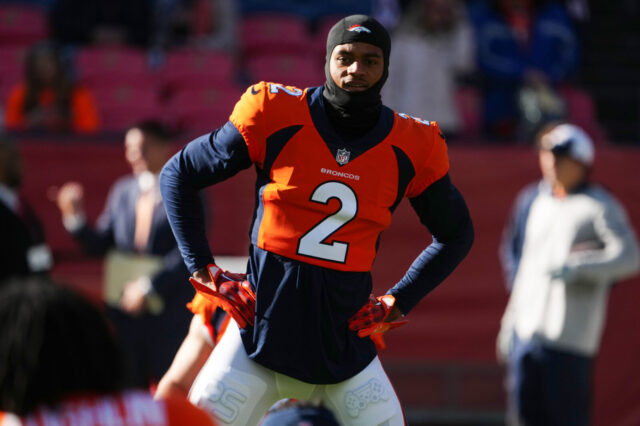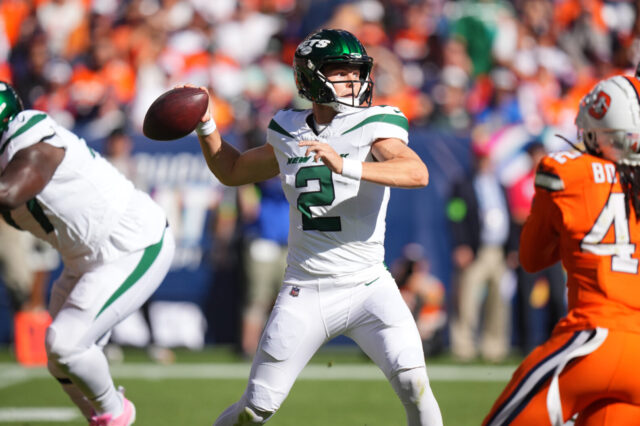On one hand, the Denver Broncos defense has been even better in 2016 than it was in the Super Bowl season of 2015. On the other, it was one of the downfalls in a season that saw Denver miss the playoffs for the first time in six seasons. Defensive coordinator Wade Phillips has seen plenty of highs and lows during his 39 years in the NFL, and on Thursday he took stock of what happened to his defense in 2016.
Heading into the final game of the season, Phillips still heads the No. 6 total defense in the league, giving up 322.4 yards per game. Last year his unit dominated the NFL with a stingy 283.1 yards per game. Denver’s pass and rush defense ranked first and third, respectively. This year, Denver’s pass defense is still the best in the league, and is in fact allowing 12.4 fewer yards per game than last year. But the run defense this season ranks 29th in the league at 135.2 yards per game.
When Phillips met with the media on Thursday he had this to say about his run defense:
“We’ll go back and look at all of it when the season is over and analyze those things. Certainly stat-wise, you can see that the run game was what hurt us. We actually played better stats against the pass than we did last year, which was phenomenal. We’ll have to go back and look at that, but the most important thing is to win. It’s just like last week [in Kansas City]. I said it all along; it doesn’t matter if they have 500 yards if we win the ball game. We gave up – the worst quarter that I’ve ever seen – 21 points in the first quarter. Then we fought back and I thought that we didn’t give up [and] we were almost in the ball game when it looked like we were going to get blown out in the first quarter. That’s why I think those guys will still practice and come back and play hard this [final] game.”
One of Denver’s biggest Achilles heels on defense this year was their propensity for giving up points on the first drive of the game. Denver ranks 28th in the league through 15 weeks, allowing 6.3 points in the first quarter.
Phillips didn’t pinpoint why Denver got off to slow starts this season, but did comment on the impact it had on the team this season:
“It’s still how many [total] points that you give up, but you certainly don’t want to give [up points early]. Like I said, giving [points] up at that time even though we came back and played well after that. I think it hurts the team overall; just the concept of being behind and not being able to get back and make enough plays defensively to get us ahead. Most of the time when we got head, we’ve won.”
Playing from behind wasn’t just a defensive failing this year. Denver’s offense was also the worst in the league at scoring first-quarter points. Add to that the fact that Denver’s offense was also among the worst in the league in three-and-outs, and it made for a bad formula for Phillips’ defense.
“Ball games go differently. Every game is a different game,” Phillips said. “We’ve had a lot more running plays against us when we’re behind. A part of that [is] even though we haven’t given up a lot of points overall, getting behind early has hurt our team because now our offense plays from behind and then we play from behind [and] they run the ball more. We’ve had maybe 100 more plays than the teams ahead of us on defense. Part of that is our fault.”
The run defense will face another tall task in Week 17 against the Raiders. With starting quarterback Derek Carr out for the year, Oakland will likely lean on its stout rushing game with Matt McGloin under center. In a Week 9 loss at Oakland, Denver allowed 218 yards on the ground. It was the first time since Week 16 of the 2014 season Denver had allowed more than 200 yards on the ground. The 238 the Broncos allowed in Week 16 against Kansas City this season was only the third time in three seasons an opponent had eclipsed that mark.



